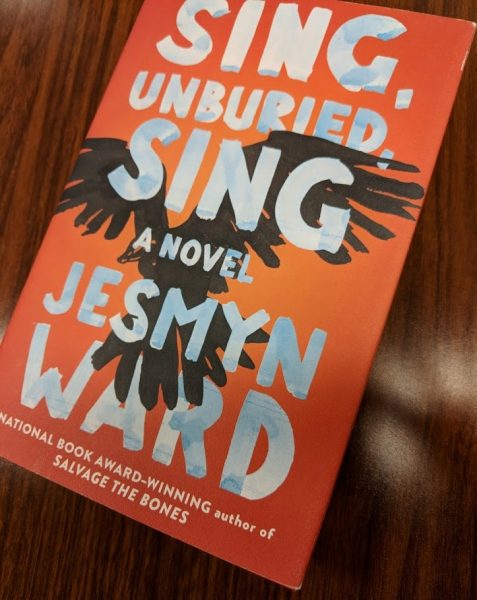
Author Jesmyn Ward is making waves with her third novel, Sing, Unburied, Sing, which was just released in 2017. This novel won the National Book Award, making Ward the first woman to win not one, but two National Book Awards in Fiction.
Ward was born in 1977 in DeLisle, Mississippi. Later, she received both her Bachelor’s in English and her Master’s in Media Studies and Communication, not held back by the fact that she was the first person in her family to attend college. Her education didn’t stop there, and she got a Creative Writing MFA from the University of Michigan in 2005.
While she had a strong background in English and writing, in 2008 she enrolled in a nursing program. Ironically, this was when her first novel, Where the Line Bleeds, was picked up by Agate Publishing for publication. Eventually, this novel won the Black Caucus of the American Library Association Honor Award.
Her second novel was Salvage the Bones, which went on to win the National Book Award for Fiction in 2011. In an interview with the Paris Review about this book, Ward reflected that “it infuriates me that the work of white American writers can be as universal and lay claim to classic texts, while black and female authors are ghetto-ized as ‘other.’ I wanted to align Esch [the book’s protagonist] with that classic text, with the universal figure of Medea, the antihero, to claim that tradition as part of my Western literary heritage.”
Now, Sing, Unburied, Sing has found its place with her two other novels. This book moves between the narration of two main characters, Jojo and his mother, Leonie, and their lives in Mississippi in the 21st century. Throughout the book, Jojo is trying to figure out his place among his Black grandfather, Pop, his often-absent Black mother, and his White father, Michael, who is in jail. All of these dynamics add certain complexities to Jojo’s own identity, further exacerbated by the fact that he acts as a primary caregiver for his younger sister, Kayla.
In an interview with PBS, Ward reflected on her inspiration for writing this novel. First, she wanted her characters to visit Parchman Prison, where Jojo’s father was imprisoned. But she learned that “in the 1940s, that kids, black boys, children as young as 12 were charged with petty crimes, like vagrancy or theft or loitering, and they were sent to Parchman Prison Farm, right, where they were basically reenslaved.”
This influenced her to “write about a 12-year-old kid. You know, I really want to write a character who endured this, but who is able to interact with Jojo, who is able to have some sort of agency that that person didn’t have when they were alive.”
Her entire interview is filled with more inspiration and explanation about her novel. You can find it here: https://www.pbs.org/newshour/show/jesmyn-ward-answers-your-questions-about-sing-unburied-sing
Ward’s success doesn’t end there, however. Just this year it was announced that Scribner and Caitlyn Dlouhy Books will be publishing two more books from her. And the article on Publishers Weekly explains, the un-named novel will “take place at the peak of the American slave trade, and follows an enslaved woman sent south from the Carolinas to New Orleans, site of the country’s largest slave market.” She also has a novel for middle schoolers in the works.
Ward said about this signing that “Even though I read voraciously as a child, I never saw myself in books. Without narratives to expand my ideas of who I could be, I accepted the stories others told me about myself, stories which diminished and belittled me and people like me. I want to write against that.”
With Ward’s continued success through Sing, Unburied, Sing, she is a powerful end to Black History Month, an end clearly without an ending. Ward continues to shed light on America’s history of racial discrimination, and write about characters who live through these experiences, like the Parchman Prison, and the impact this legacy and these experiences have left on our current society.
